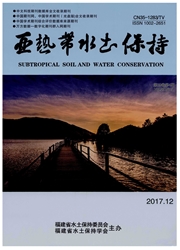

 中文摘要:
中文摘要:
采用磷脂脂肪酸(PLFA)生物标记法和聚合酶链式反应-变性梯度凝胶电泳(PCR-DGGE)技术,研究了外源芘的添加对土壤中微生物群落结构和遗传多样性的影响。结果表明,在培养1~15d内,添加芘的土壤中脂肪酸总量高于未添加芘的对照组;而培养30d时,添加芘的土壤中脂肪酸总量低于对照组。芘的添加增加了土壤中真菌、放线菌和革兰氏阴性菌的脂肪酸含量,减少了革兰氏阳性菌的脂肪酸含量,并改变了土壤中细菌群落的遗传多样性。多样性指数在培养15d时最低,而到培养30d时达到最大值,其变化可能与土壤中外源芘的降解有关。
 英文摘要:
英文摘要:
It was studied the effect of exogenous pyrene on structural and genetic diversities of microbial community in a paddy soil by using phospholipid fatty acids (PLFA) analysis and polymerase chain reaction - denaturing gradient gel electrophoresis (PCR - DGGE). The results showed that during the incubation time of 1 to 15 days, the total PLFA content was higher in pyrene - spiked soils than that in the unspiked control, while the results was opposite after 30 days incubation. At the end of incubation experiment, the spiking of pyrene increased fatty acids contents of fungus, actinomycetes and gram - negative bacteria, but decreased fatty acids contents of gram - positive bacteria. In addition, the spiking of pyrene altered the genetic diversity of soil bacterial community when compared with the control, genetic diversity index was lowest at the incubation time of the fifteenth day, while was highest at the incubation time of the thirtieth day. Variation of the diversity index might be related to the degradation of pyrene in the spiked soils.
 同期刊论文项目
同期刊论文项目
 同项目期刊论文
同项目期刊论文
 期刊信息
期刊信息
